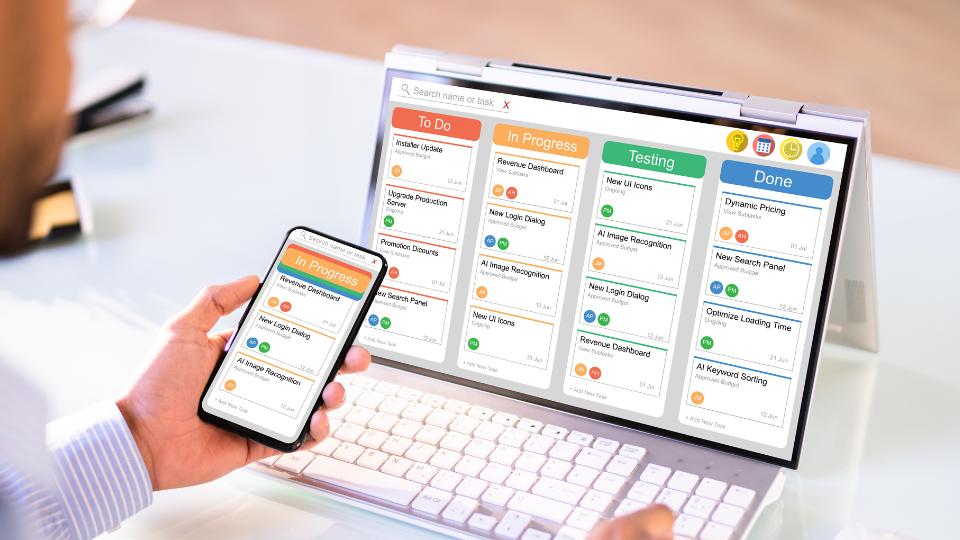Complete Guide to Choosing the Best Software Development Company for Your Project

Choosing the right software development company is crucial for turning your vision into reality. With countless options available, it can be overwhelming to decide which company is best suited for your project. In this guide, we will walk you through the steps to make an informed decision, ensuring you partner with a reliable company that aligns with your goals.
Table of Contents
1. Understanding Your Project Needs

Before you even start looking for a software development company, it’s essential to have a clear understanding of your project. Define your goals, target audience, and specific requirements. Here are some questions to help you outline your project:
- What is the purpose of the software/app?
- What problem will it solve?
- What features and functionalities are a priority?
- Do you have a timeline in mind?
By answering these questions, you can better communicate your vision to potential developers.
2. Researching Software Development Companies

Once you have a clear project scope, it’s time to start researching companies. You can:
- Use search engines to find top-rated software development companies.
- Check out freelance platforms if you’re open to smaller teams.
- Ask for recommendations from colleagues or professional networks.
- Review industry-specific directories.
Useful resources to begin your research:
- Clutch.co: A B2B ratings platform with reviews of software companies.
- GoodFirms: A research platform for B2B tech companies.
- AppLaunchHub: A platform dedicated to connecting you with the best software development companies.
- Upwork: If you’re considering freelance developers.
3. Evaluating Company Experience and Expertise
One of the most critical factors is ensuring that the company has experience relevant to your project. Here are a few ways to evaluate this:
- Portfolio: Review the company’s past work and case studies.
- Technological Expertise: Ensure the company specializes in the technology stack (e.g., Java, React, Node.js) needed for your project.
- Industry Experience: If your app serves a particular industry (e.g., healthcare or e-commerce), check if the company has relevant experience in that field.
| Factor | Why It Matters | Example |
|---|---|---|
| Portfolio | Demonstrates past work and quality | A company that developed a complex e-commerce app |
| Tech Stack | Ensures the company has the right tools | Expertise in mobile-first development using React Native |
| Industry Expertise | Tailors solutions to your market | Experience with financial or healthcare applications |
4. Checking Reviews and Client Feedback
Customer feedback is an excellent indicator of a company’s reliability and professionalism. Check independent review platforms like Trustpilot, Google Reviews, or Clutch. Additionally, reach out to past clients for references if possible.
Bullet Points for Quick Review
- Look for detailed reviews, not just star ratings.
- Focus on projects that are similar to yours.
- Verify the authenticity of the reviews.
- Contact past clients to discuss their experience.
As you consider client feedback, remember that understanding the overall app development process is crucial. For insights on navigating each phase of your project, read our blog on The Seamless App Development Process.
5. Considering Pricing and Budget

Budget plays a significant role in your decision. However, it’s essential to focus on value rather than just cost. A cheaper option may lead to compromises in quality. Request quotes from several companies and compare their pricing models.
Factors to Consider for Pricing
- Fixed Price: Suitable for projects with a clearly defined scope.
- Hourly Rate: Best for ongoing projects or where flexibility is needed.
- Milestone-Based: Payments are tied to the completion of certain phases.
| Pricing Model | When to Use | Pros | Cons |
|---|---|---|---|
| Fixed Price | Clear, defined scope | Predictable costs | Less flexibility |
| Hourly Rate | Ongoing or unclear scope | Flexible | Can lead to higher costs |
| Milestone-Based | Large projects with phases | Pay per phase completion | Requires strict planning |
6. Communication and Project Management Tools

Effective communication is critical to project success. Choose a company that uses project management tools like Trello, Asana, or Jira to track progress. Ensure they have a clear line of communication and frequent updates.
Essential Project Management Tools
- Trello: Ideal for task tracking with boards and lists.
- Asana: Great for larger teams managing multiple tasks.
- Jira: Perfect for software development teams using Agile methodologies.
7. Making the Final Decision
After considering all these factors, narrow down your options to two or three companies. At applaunchhub, we connect you with the right company, so you don’t have to choose from many options. Schedule interviews or discovery calls to discuss your project in detail. With our expertise, you can trust that you’ll find the best partner for your software development needs.
Final Checklist
- Does the company have relevant experience?
- Are their reviews and testimonials positive?
- Is the pricing aligned with your budget?
- Do they use proper communication and management tools?
- Did the discovery call leave you with a good impression?
In Summary
Choosing the right software development company is a significant decision that will impact the success of your project. By carefully evaluating your options based on experience, pricing, communication, and client feedback, you can confidently partner with a team that brings your vision to life.
